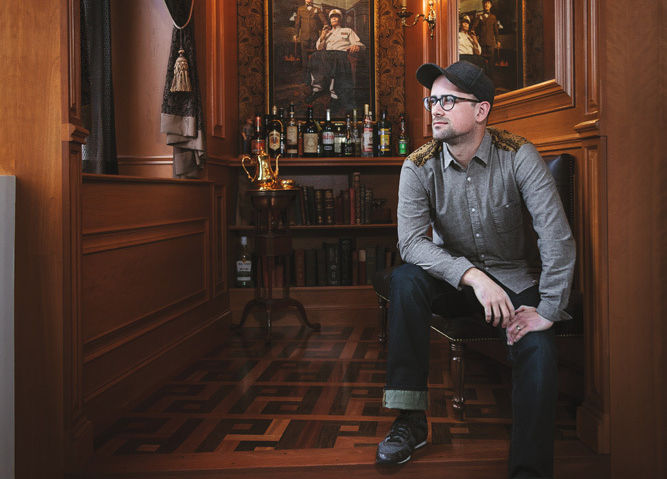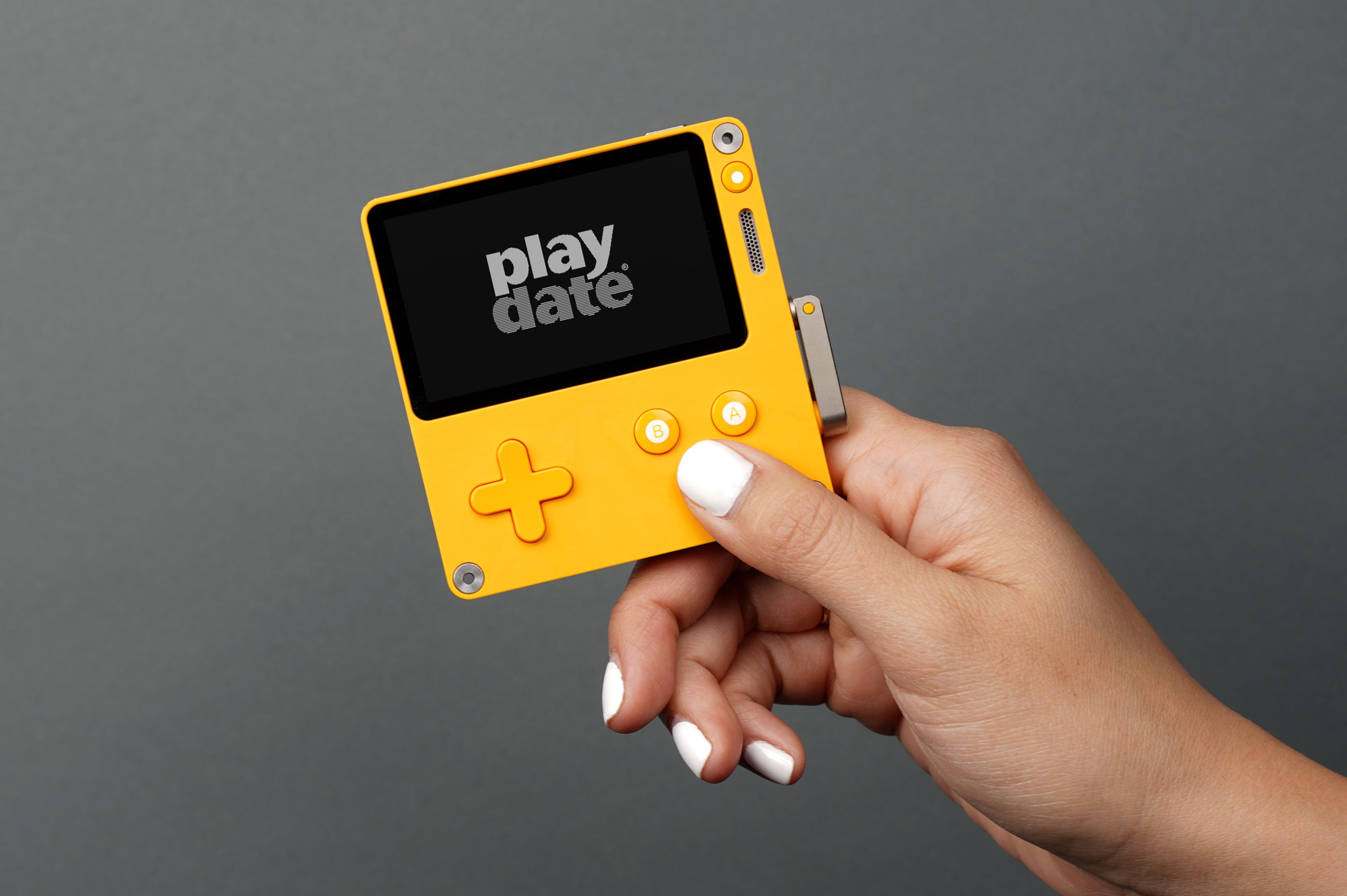How Untitled Goose Game Conquered the Gaming World

Panic cofounder Cabel Sasser in his company's downtown office
Image: Nicolle Clemetson
You might have heard about Untitled Goose Game—the smash-hit puzzle adventure game putting you in control of a naughty goose. Last week, the game shot to #1 on the Nintendo Switch store, improbably beating out a Zelda game release on the same day. Blink 182 and Chrissy Teigen cosigned it. Memes were born. It's a whole thing.
While the game's four-person development team is based in Melbourne, Australia, some of the surprise success can be traced to its small Portland publisher: Panic, which has been producing elegant—though somewhat niche—Mac development software since the late 1990s. Panic's flagship app, for instance, is a file transfer tool called Transmit—a beautiful piece of software that few outside the Mac programming world might need. But in 2017, the company signaled more mainstream ambitions when it published the critically acclaimed first-person mystery game, Firewatch. And earlier this year, they announced a bright yellow handheld gaming device called Playdate—basically a sleek, minimalist Gameboy but with a handcrack to be released in 2020.
Is Panic primed to become a gaming company? We talked to Cabel Sasser, cofounder of Panic, about the game and how goose memes could change the trajectory of the company forever.
So, how did this all come about? We hadn't heard of the game until the trailer came out [in 2017]. And [Panic cofounder] Steve [Frank] looked at me and said, 'Oh man, we gotta publish this.' It immediately resonated with us. The trailer was funny. It had a cool art style. We just immediately wanted to play. Not a lot of games are funny, you know? So I dashed off an email to House House, which is the team in Australia. And it was not a great email; it was very short. It just said, 'Do you want a publisher?' (Laughs) Because I figured they're probably getting a bunch of pitches, so I might as well just keep it short and sweet. But incredibly, they were receptive to the idea. They liked that we were involved in Firewatch. So there was a cool connection there. And I think we just do things a little bit differently than anybody else who publishes games. We're not a publishing company, right? Like, we still make Mac software. At most we can maybe do a game a year or a game every couple of years. So we can give these games our total focus.
When did you know it was going to be a hit? We did a couple of booths at Penny Arcade Expo in Seattle with some beautiful displays of Goose Game. That was one of the times when we thought, 'Aw man, there might be something really interesting happening here.' People were lining up for an hour or two hours just to play a 10 minute demo. And that was like, 'Wow, wow, wow. What's happening?' But we didn't want to get overconfident because you never know.
What do you think people like about it? It's not super long, but it's not like so short that you're unsatisfied and it. And it's escapism—in this really pure way. A lot of video game escapism is about doing bad things and it feels bad. But with this game you're doing bad things and it feels good. That makes a huge difference. But I don't think even in our best case scenario we expected it to resonate with so many people that don't even really play video games. And that was our dream. There's something off-putting [about gaming] to so many people. The barrier to entry to enjoying a video game is huge. We could chip away at that a little bit. That feels extremely good.
What was your role as publisher of the game? Generally I think of it as we do all of the other stuff that's necessary to bring a game into existence other than making the actual games. So in this case, we did QA testing. We negotiated with the big platforms. We handled the launch. We did all the localization. We did all the marketing, the booths. There's just a billion little small things. I hope was a great relief for [House House] that they didn't have to worry about it and we had it under control and they could just finish the game.
What we did not know is that we were going to be launching on the same day as the Zelda game. That came as a surprise. And so I think we all figured that, you know, Zelda, of course, was gonna dominate that day. And the fact that we eventually overtook Zelda... it's one of those experiences where it's so surreal. t's hard to appreciate it when you're in the middle of it because, you know, we've been in the mines working on this thing and also trying to be mindful of the fact that it may never happen again. This could be the only game that we're ever involved with that hits on this kind of level, right? I'm trying my hardest to separate myself from the situation and be like, 'Wow, this is really cool.'
What's the through-line between your different gaming projects? That's a really good question. Now we ask ourselves, 'We've published two games, we obviously want to do more in the future, but what is our thing? Like, what are we bringing into the world?' I'm still formulating what our thing is. But I do wonder if it's finding ways to reach people that maybe don't normally play video games and involving them a little bit in the video game world—making something that's accessible to not just that hardcore gamer audience, but also isn't a gross casual game where you have to buy buckets of gems. There's an interesting world of video gaming where everybody can appreciate and enjoy them. I'm just totally riffing here, but I'm wondering if that's maybe the direction that we're headed in.
We've heard from every possible type of person that has played this game and that has been the best part by far. Those little personal stories have made this project 50 times more amazing. I don't think we expected the fan art. There's this incredible handmade little diorama of the goose and the radio and the picnic basket. This person in Korea made it—it's just like the most beautiful and precious thing.
With Playdate coming next year, do you feel like your involvement in games is a turning point for the company? I obviously think about this a lot. I do know that a lot of these things won't happen if we overthink them too much at the beginning. We'd just get scared or intimidated. I feel like we sneak up on a lot of things because it's the only way that we can do it without getting intimidated. That's definitely been the case with [our] games. We sort of snuck into game publishing and now we're sneaking into hardware. In both those cases, it's possible that it could change the course of the company. For sure.
But Playdate will be a real test. How many people want to buy that device? I don't know. It could be not a lot or it could be a lot. Gaming is much bigger than Mac software in terms of market size. But it feels really nice to not have all our eggs in one basket—because for a long time that's what we had. And that always made us a little bit nervous. It's nice to know that there are many places and that we're still trying new things. So we're just gonna keep going and keep sneaking up on those things and see where this journey takes us. I mean, so far it's worked. Knock on wood.




